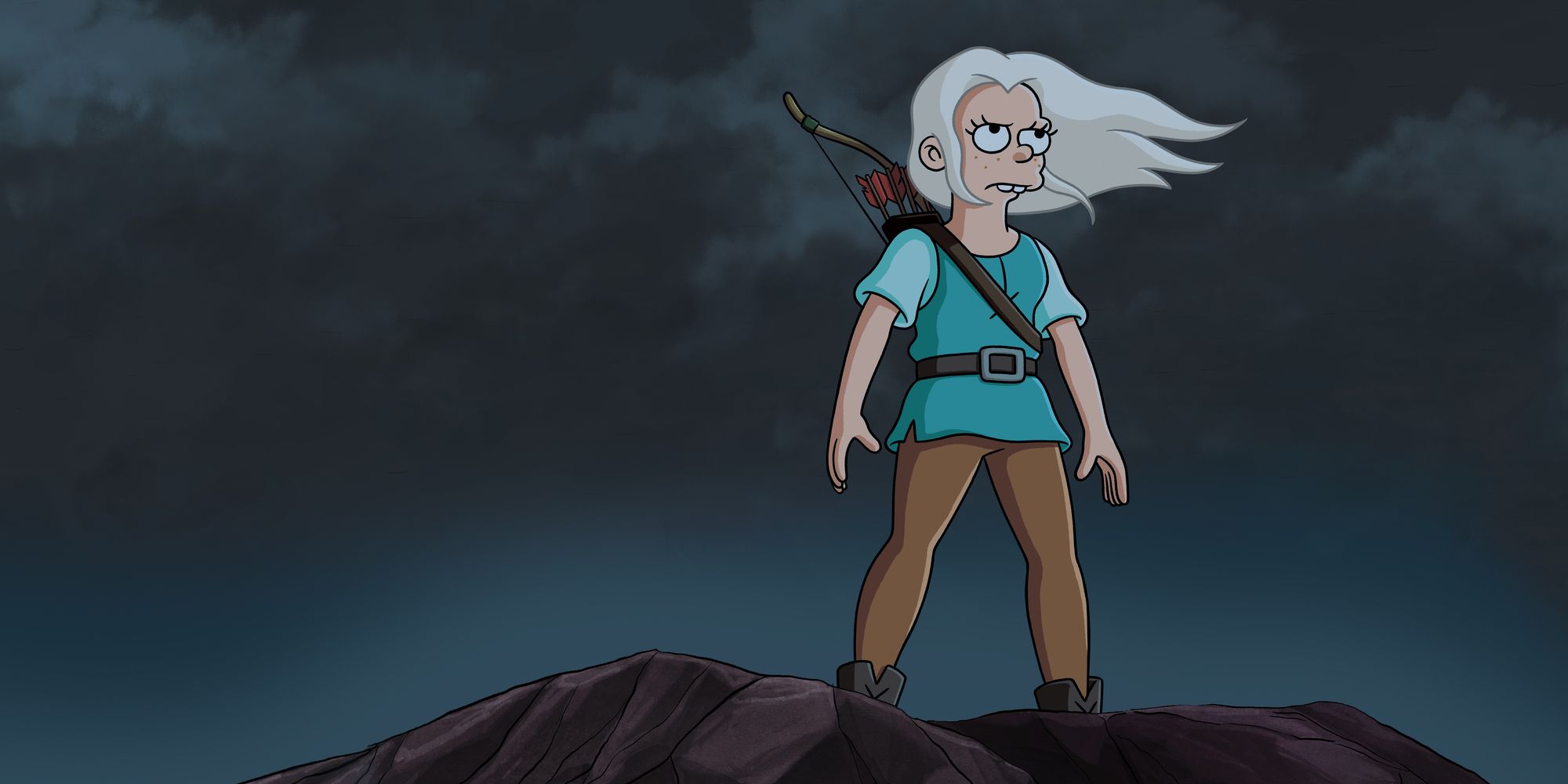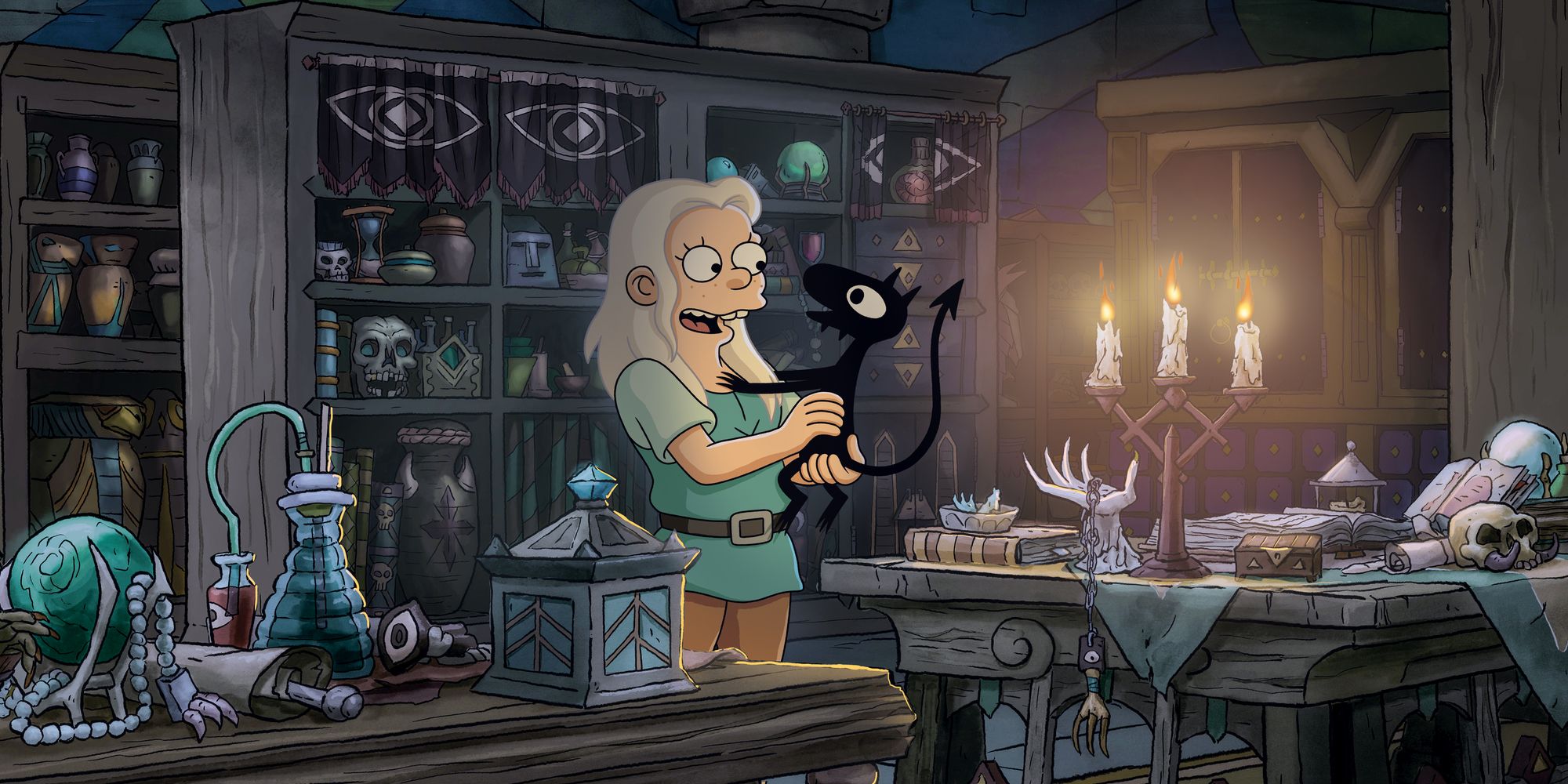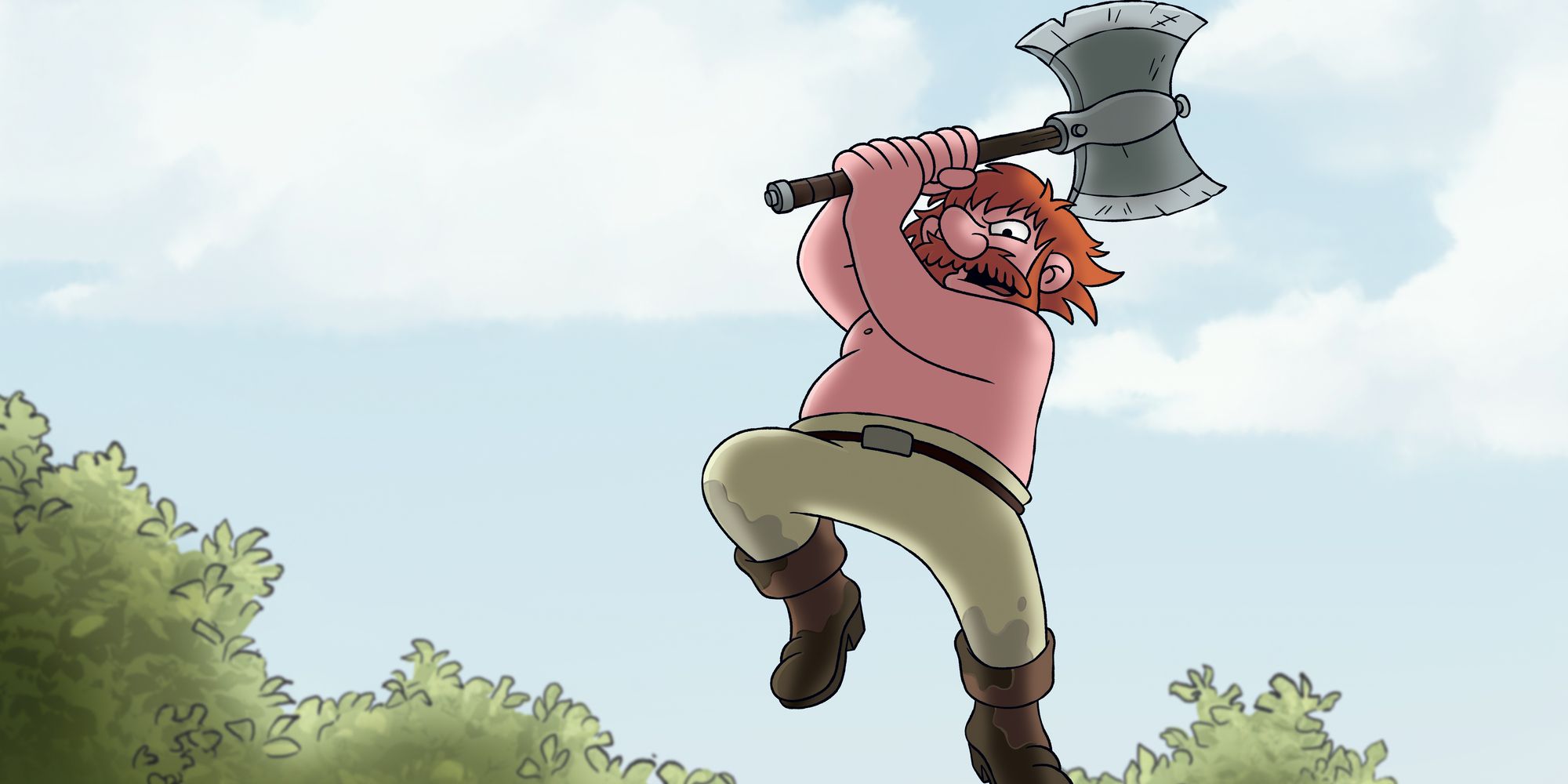When a show follows in the footsteps of not only The Simpsons, one of the greatest (and longest-running) shows of all time, and the very funny Futurama, chances are expectations can run a little high. That’s certainly the case with Matt Groening’s latest animated offering, Disenchantment, which made its streaming debut on Netflix in the fall of 2018. The series, a familiarly irreverent take on fairytale and fantasy tropes, told primarily through the lens of a very unconventional princess named Bean (Abbi Jacobson), as she discovers her place in the world isn’t to wait for Prince Charming — or whatever pig (literally) her father has arranged for her to marry — but to carve a path on her own… or at least carve a path with her friends Elfo (Nat Faxon) and the demonic Luci (Eric André).
Season 1 (or Part 1) was largely concerned with fleshing out the world Bean and the other characters inhabited, particularly the kingdom of Dreamland, which she would one day rule, so long as her father, King Zøg (John DiMaggio) didn’t completely destroy it beforehand. But it was also preoccupied with the opportunity to toy with common fairytale constructs, usually turning them on their ear or poking fun at them as a demonstration of the show’s self-awareness. It worked, to an extent. Disenchantment was often capable of producing a chuckle and its three core characters — Bean, Elfo, and Luci — were an interesting enough combo, but still, something was missing.
Like most TV comedies, Disenchantment’s writers needed time to figure out what sort of comedy it was, and to get a better feel of their characters and setting before the show could truly come into its own. While there’s still some room to grow, Disenchantment Part 2 takes a considerable step forward in terms of storytelling, plotting, character development, and, above all, being laugh-out-loud funny.
Sure, most viewers’ mileage may vary, but from the start, Part 2 just feels more confident in its presentation, practically from the top down. That confidence began building late in Part 1, when the story took on a more serialized nature, building on Bean’s past, her connection to her absent mother, and the fateful decision she made that not only brought Queen Dagmar (Sharon Horgan) back, but resulted in Elfo’s death and caused the population of Dreamland (minus King Zøg) to be turned to stone. Though that kind of forward momentum late in the game made the series’s early episodes look too much like unnecessary preamble, it nevertheless afforded the writers a perfect jumping off point for Part 2.
The effect is essentially twofold: Bean is tasked not only with finding a way to bring Elfo back to the land of the living, but to also learn of her mother’s nefarious true intentions, by means of Bean’s creepy aunt and uncle in what plays a bit like a low-key spoof on Dany’s misadventures in Meereen in Game of Thrones. The circumstances are simple enough — at least for an animated comedy about a fantasy world — but they do something far more important than simply offering a sense of progression and conflict: they get Bean out of Dreamland and plop her in a series of situations where she’s no longer lamenting her life as a princess in a patriarchal society, but actively setting the course of the story and impacting the lives of her companions.
With the newfound energy and sense of direction, everything in Disenchantment seems to fall into place — or, at least get closer to doing so. The series’ many jokes, pop culture references, and snarky asides are a more believable product of the character's conversation at hand, making them feel less forced or Family Guy-like. The humor, then, becomes less a distraction and a more integral part of what makes the show work. As such, the writers are able to layer more jokes and references on top of one another without stopping to point them out. It’s still nowhere near the level of what The Simpsons was able to accomplish in its heyday, but for those in the market for a close approximation, Disenchantment will do in a pinch.
Another upside is that Disenchantment is much more bingeable in Part 2, as the easy progression and rhythms of the series’ storytelling are much more in synch with the Netflix all-at-once streaming model. It’s not just Bean who benefits either, as Elfo, Luci, and Zøg all get more significant storylines that not only rounds out their characters a bit more, but help push the overarching story along in a more satisfying way. In other words, Disenchantment Part 2 is an impressive improvement built upon the somewhat shaky foundation of Part 1, and it puts the descendent of The Simpsons and Futurama in league with some of the best adult animation available on Netflix right now.
Disenchantment Part 2 will stream exclusively on Netflix starting Friday. September 20.



